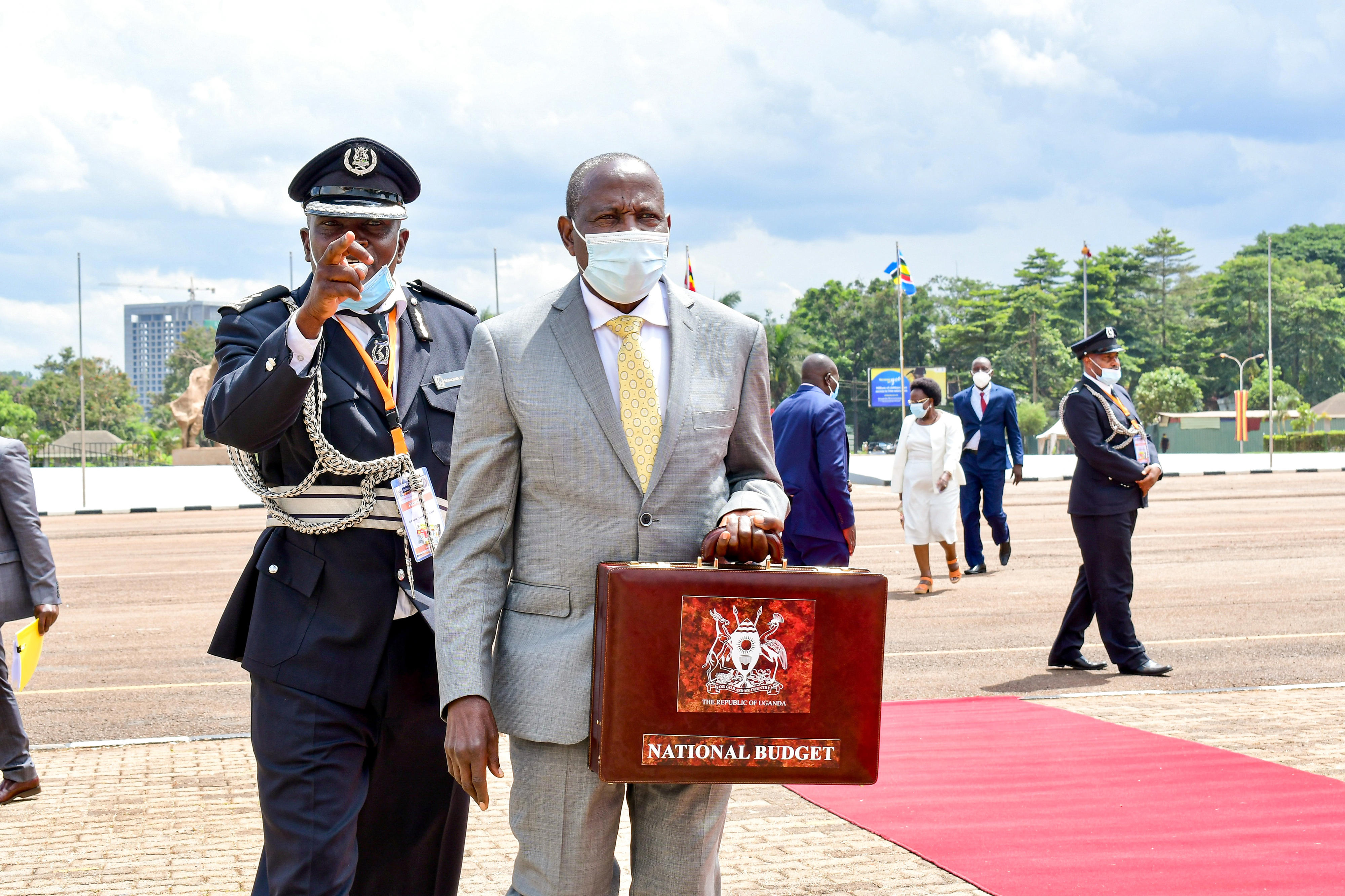Prime
Worry about usage of borrowed money, not the amount - Kasaija

Difficult. Mr Kasaija says without borrowing, it is difficult to mobilise funds to expand the economy.
What you need to know:
- Whereas Mr Matia Kasaija has previously said he was starting to get concerned over the level of public debt, at the weekend he said “I am not worried at all” in regard to the current public debt position, which now stands at about Shs80 trillion.
Finance Minister Matia Kasaija has said he is not worried about the rising level of debt, urging Ugandans to concentrate on how borrowed money is used instead of focusing on the amount.
Speaking in a telephone interview at the weekend, Mr Kasaija told Daily Monitor, that there was no reason to worry, noting that there is no single country in the world that does not borrow.
“Why should I be worried? Which country does not borrow? I am not worried at all. Borrowing is not the issue, the issue is when you borrow, is the money going into productive sectors that increase capacity to develop the economy?” he noted in response to a number of questions regarding Uganda’s debt position.
READ:
However, Mr Kasaija’s new position is a shift away from earlier pronouncements in which he has previously indicated that he was concerned due to the rapid surge in debt levels.
In July last year, Mr Kasaija told journalists that he was particularly uncomfortable with the public debt levels, noting that government would, going forward, be extremely cautious on acquiring new debt.
“We are at a level which makes me uncomfortable. Once you see you have gone beyond 50 percent, it requires one to be concerned. So, we are conscious and extremely concerned about our public debt,” he said then.
At the weekend Mr Kasaija also noted that government will continue to borrow because “we need our economy to expand yet we cannot raise enough capital locally”.
“I can borrow even up to 100 percent, provided the money we are borrowing builds capacity to repay our loans. A country is like a business. All big companies, I can tell you, borrow because there is no way they can raise capital to expand,” he said.
Critics have blamed government for the excessive appetite for loans going to an extent of borrowing from commercial banks , which stifles private sector lending.
At the weekend, Ms Maris Wanyera, the Ministry of Finance acting director debt and cash policy, told Daily Monitor that the share of commercial loans currently stand at 21. 86 percent of public debt or a nominal value of $2.8b (Shs10.4 trillion) as of June 2022.
The share of commercial loans has been increasing since June 2019, rinsing from 16.39 percent or $1.36b in 2019 to 20.3 percent or $2.5b in June 2021, before rising further to 21.86 percent as of June 2022.
However, the share of concessional loans, Ministry of Finance indicates, has fallen from 65.13 percent in June 2019 to 56.29 percent in June 2022 while the share of semi-concessional loans, which Ms Wanyera said are fairly cheap, has risen from 18.49 percent as of June 2019 to 21.85 percent as of June 2022.
Ministry of Finance indicates that as of June 2022, the stock of public debt stood at $20.98b (Shs78.79 trillion), an increase of 13 percent from $19.54b (Shs69.51 trillion) as of June 2021.
However, the figure has increased further to about Shs80 trillion as government continues to acquire new loans.
Debt repayment and servicing takes the largest share of locally mobilised revenues, leaving government with very little to fund both recurrent and development expenditure.
Mr Kasaija on the current debt position
Debt repayment and servicing currently takes the largest share of mobilised revenue. Isn’t govt worried about this trend?
Why should I be worried? I am not worried at all. I should be worried about how the economy moves to get me that money.
From where you sit, what is the ratio of our debt to gross domestic product?
Our desired debt mark is 50 percent. We have now gone slightly above 50 percent. We want to get the money, which will help the economy to go up again and then we reduce that ratio back to below 50 percent.
How are you going to do this?
By investing more and urging Ugandans to produce more so that we can export more to generate revenue.
China recently announced a debt write-off plan for Africa. Is Uganda part of the countries that will be considered?
I have not been around for some time. You can get updates from my Permanent Secretary. But for sure if there is an opportunity, I would take it with open arms. We are so friendly with China, I suspect either the notification has been sent through or it will come in due course.
What is the share Uganda’s concessional loans?
Mr Kasaija referred Monitor to Ms Maris Wanyera, the Ministry of Finance acting director debt and cash policy. Data provided by Ms Wanyera indicates that as of June 22, the share of concessional loans stood at 56.29 percent.
Additionally, what is the value of Uganda’s commercial loans? Data provided by Ms Wanyera indicates that the share of commercial loans has grown from 16.39 percent as of June 2019 to 21.86 percent as of June 2022.
What would you tell those saying government is borrowing excessively?
There is no single country that does not borrow. Borrowing is not the issue, the issue is when you borrow, is the money going into productive sectors that increase capacity of the economy? Ugandans should be worried about how money we borrow is used. We need our economy to expand yet we cannot mobilise enough capital locally.
I can borrow even up to 100 percent, provided that the money we are borrowing builds capacity to repay our loans. A country is like abusiness. All big companies, I can tell you, borrow because there is no way they can raise capital to expand.




